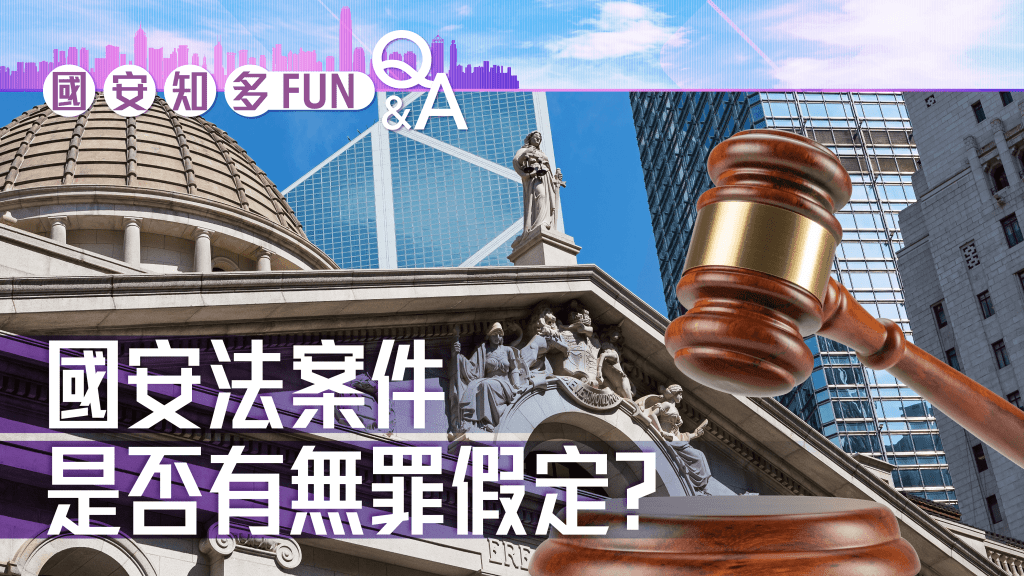It's Fun Q&A│National Security Law

What is the "presumption of innocence"? Does it apply to national security cases? If a fellow classmate performed poorly, will you speak out? If so, will you comment on the government's performance?

1. What is the “presumption of innocence”?
In national security cases, local courts follow the same common law principles as other criminal trials in Hong Kong. That means the defendant is considered innocent until proven guilty in court, and the prosecution must prove guilt beyond reasonable doubt. Article 5 of the National Security Law explicitly states: "Anyone is presumed innocent until convicted by the court", which ensures human rights protections and upholds the rule of law.

2. What to prepare before holding a public procession or assembly?
There is a lot of misinformation on the internet, which has led to many believing that criticism against the government is banned under the National Security Law. However, the actual situation is quite the opposite. Both the Basic Law and the National Security Law protect freedom of speech. As long as the criticism against the government is made in a rational and legal way and is not intended to hamper national security, no one should be worried that they might have breached the National Security Law.
On the other hand, those intended to overthrow the government or incite others to use violence might be breaching the law, just as if a classmate is performing poorly in certain areas, reminding him or her to improve is out of good faith, but if a person repeatedly slander the classmate, and even made up stories to trouble him, that would be a mistake.



